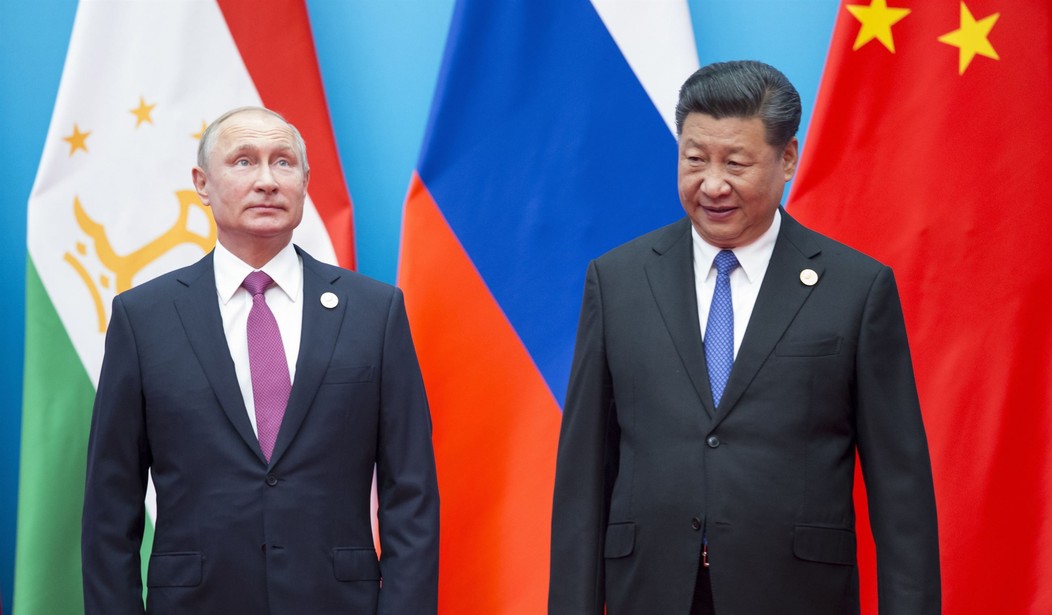When I was a little tad back in northeast Iowa, the Cold War was still an ongoing thing. We did "duck and cover" drills at school, in which we practiced the essential tasks of crawling under our desks, putting our heads between our legs, and kissing our butts goodbye. About 80 miles from where I grew up was the massive John Deere Waterloo Tractor Works, and as a major industrial site, we were told it was on the Soviet Union's first-strike nuke target list. We all knew the Soviets had those lists — and we knew we had them, too.
On Tuesday, in one of the biggest leaks since Captain Edward John Smith looked at the hole an iceberg had just punched into the RMS Titanic and said, "Oh, bother," we read now that President Biden has supposedly approved a new United States nuclear strategy, one that takes into account not only Russia but also China's growing arsenal — and North Korea.
President Biden approved in March a highly classified nuclear strategic plan for the United States that, for the first time, reorients America’s deterrent strategy to focus on China’s rapid expansion in its nuclear arsenal.
The shift comes as the Pentagon believes China’s stockpiles will rival the size and diversity of the United States’ and Russia’s over the next decade.
The White House never announced that Mr. Biden had approved the revised strategy, called the “Nuclear Employment Guidance,” which also newly seeks to prepare the United States for possible coordinated nuclear challenges from China, Russia and North Korea. The document, updated every four years or so, is so highly classified that there are no electronic copies, only a small number of hard copies distributed to a few national security officials and Pentagon commanders.
Now, bear in mind, this is a war plan based on what is a likely scenario in the event of a nuclear exchange. This is what military planners do; they make plans for every possible scenario. There is probably a plan to invade Canada in a drawer in the Pentagon somewhere. But this plan involves the use of nuclear weapons and how we would react with our own aging nuclear arsenal. It appears to take into account the increasing bellicosity of China, North Korea's work in not only nukes but also delivery systems, and the growing cooperation between Tsar Vladimir I, Chairman Xi, and that stunted little gargoyle with bad hair who runs North Korea.
Russian & Chinese Military Aircraft Intercepted Off Alaskan Coast
Blinken Says Iran Is '1-to-2' Weeks From Starting to Build a Nuke
There's a problem with this new nuclear world picture: We may not have enough nukes.
The Pentagon fears all this will stretch America’s arsenal thin—will it have enough warheads to deter China, Russia and North Korea at the same time?—and further complicate the psychology of brinkmanship. It also makes extended deterrence more difficult. When America first brought South Korea under its nuclear umbrella, for example, North Korea had no nukes and no long-range missiles. Now it has nuclear missiles that could incinerate American cities. The hope that Iron Dome shields, of the kind used in Israel and Ukraine, can protect America is misplaced: they work less well against long-range missiles. For any American president, the question looms: would you sacrifice Los Angeles to avenge Seoul? And do your enemies believe you would?
Here's what the new strategy doesn't seem to take into account: Iran. And Iran being what it is, the first indication we get that they have developed a nuclear weapon is when one goes off in Haifa, Tel Aviv — or New York. And, as I've pointed out before, Iran doesn't have to weaponize a nuke to fit on a missile; all they have to do is load one on an old tramp freighter, find a skeleton crew of idiots looking for their 72 virgins, sail it into New York harbor some dark night and torch off the nuke.
These were some of the more nerve-shredding possibilities of the Cold War — and it looks like we'll need to be dusting off those old duck-and-cover manuals again.
We live in interesting times, folks.

